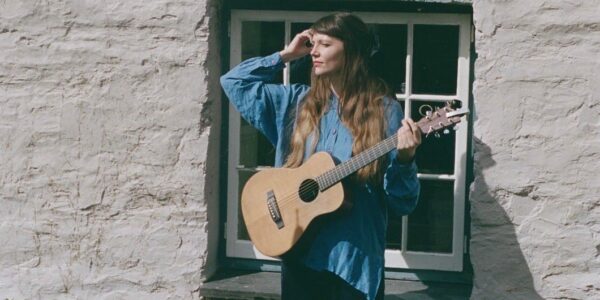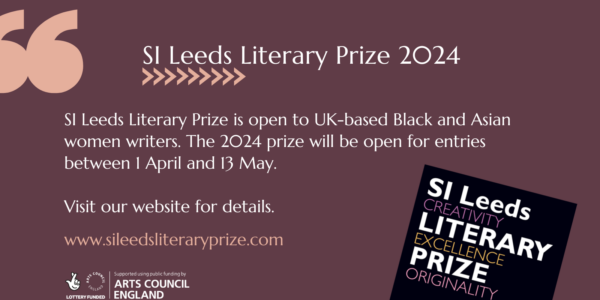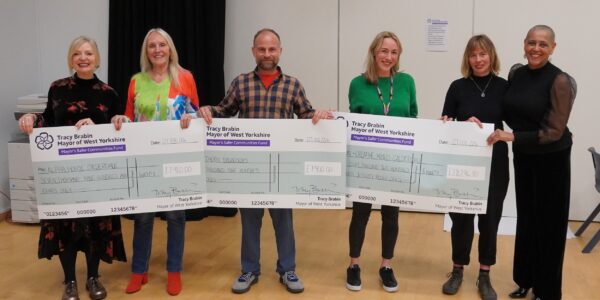Jacob Ross – The Stories We Tell
11 Jun 2020 / The Stories We Tell
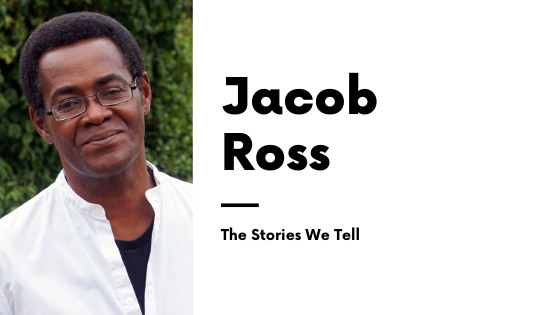
Unlocking Rooms
My appreciation of the power of stories happened in 1974. I was a pupil at a boys’ secondary school and, like the rest of the island of Grenada, was living under a Prime Minister named Eric Gairy who, during all of my childhood and teenage years, cultivated the idea that he was elected to run our lives by divine right. In his words, ‘He who opposes me, opposes God.’
We became so wary of speaking out, because of the real possibility of being ‘disappeared’ by his ‘Mongoose Gang’— a vicious paramilitary unit that took orders only from him — that we used to joke about fearing to open our mouths, even for the dentist.
A demonstration led by school children on the 21st January, 1974 changed me. By then we’d become frighteningly aware of the extent to which our lives and futures had been occluded. We were desperate — and for the young, desperation often translates as fearlessness. All the schools on the island emptied their pupils onto the streets of the capital in protest against the regime. The retribution was as swift as it was brutal. I still carry the abiding image of a middle-aged man named Rupert Bishop, cornered inside a building and being shot by a policeman as he protected a group of school children with his body.
Then followed the lockdown. Stores were closed, social gatherings banned, public meetings forbidden — all this, enforced by twenty-four-hour paramilitary patrols. We were forced to survive under a three-month, shoot-on-sight curfew. During the lockdown, the children of my village took it upon themselves to slip out of their homes into that strangely quiet and unnerving world, to gather wild yams, fruits and vegetables in the foothills or the mountains that towered over us, in order to feed our families.
At night, we would go fishing via tortuous mud tracks and ancient hidden back-routes through the forest to the sea. The adults tried to frighten us into staying at home, with all sorts of cautionary tales and threats, but we understood that we could make ourselves less visible to the soldiers because stealth was something our younger bodies took for granted.
That sense of containment and stricture, and the destructive potential of authority never left me. I find myself returning to these themes time and again in my writing, along with wider questions which have evolved from that period in my life: what makes societies like ours, forged as they are out of the violence of sugar-plantation bondage, replicate the very violence they have emerged from?
I came out of that three-month lockdown with a handful of stories in an exercise book, written in a sort of compulsive fervour, while lying on my belly stretched out on the deserted public road, and not giving a damn about paramilitary patrols. By then, I’d long gone past caring. All this, I think, was part of my striving to find words for the almost psychic shifts I sensed were occurring inside me. Those stories represented my first flounderings to articulate what I now recognise as outrage. When I wrote those early pieces, I had no idea that I wanted to be a writer. That would come a couple of months after the curfew.
As a pacifying gesture by the man who believed he owned the island, secondary school pupils were offered a thirty-minute programme on the radio called the National Inter-college Broadcast. I volunteered to read one of my ‘curfew’ stories, ‘A Game of Marbles’, for the third broadcast—about a young boy stepping out into the night to find food, and taking his ‘hunt’ to the local politician’s home.
There is a stirring in the big house: chairs falling, a man’s deep voice, lights switched on in the rooms, a woman’s voice pitched high. He remembers Missa Ducan’s gun but does not move. He takes his third marble, aims at the blazing bulb and fires. The light explodes in a shower of sparks and tinkling glass. Only the moon shines now; its light is soft on the grass. The turkey is a dark heap where it has come to a stop against the gate. Sprinting across the lawn, he lifts it, opens the gate, just managing to throw himself flat as the man comes out on the verandah.
Missa Ducan is a giant shape against the half-opened doorway. The gun is in his hand. The man is shouting and looking into the night. The boy lifts his slingshot. It is his last marble. He narrows his eyes, aims and fires. The night explodes with the shattering of the glass door. Missa Ducan ducks and with flailing arms throws himself backward into the house.
That story has survived, and is in my most recent book of collected stories, Tell No-one About This.
Suffice it to say that after I read ‘A Game of Marbles’ on the radio, the programme was pulled off the air. The producer almost lost his job; the following week, my headmaster, Mr H. D. Baptiste, intercepted me at the school gates and instructed me to return home until he sent for me. That, he said, would only happen ‘when things calmed down’. I didn’t seek to verify whether the authorities had really come looking for me as some of my classmates alleged, but I’ve never forgotten the realisation that struck me then—not so much about what a story was, as what it could do. It felt like an epiphany.
Although I couldn’t articulate it at the time, I’d stumbled upon the uplifting and sometimes subversive power of metaphor, symbolism and narrative. I know now that stories possess an exceptional capacity to influence, persuade and even manipulate. ‘Narratologists’, who make a living studying this sort of thing, claim that it is the only mode of communication which engages all three faculties at the same time: the rational, the emotional and the imaginative. Indeed, I’ve often argued that the ultimate goal of language is story.
That aside, what experience has taught me is that regimes, like the one I lived under until I became a young adult, are wary of their story-makers. That suspicion is the norm. Western Europe and North America are, in fact, atypical. There is a whole literary sub-genre called ‘Prison Literature’ in Latin America. Some of Africa’s most prominent writers — South Africa’s Bessie Head; Kenya’s Ngũgĩ wa Thiong’o; Nigeria’s Nobel Laureate, Wole Soyinka — have been thrown in jail because of their stories. Not so long ago, India’s Arundhati Roy attested to the backlash to her writing ‘in the form of police cases, legal notices, court appearances, and even a short jail sentence’. I could go on and on…
When, in later years, I began to pay closer attention to how and why stories work —their common under-structures and shapes— across a range of storytelling and writing traditions, I saw that, in my own story-culture, the lessons about the power and danger of story were already there to be learned. The folk narratives I grew up with and took for granted, were not just benign tales designed to entertain children; they were coded instructions into ways of surviving. Thus the story of the tiny spider, Ananse —who relies on his wits to survive the real threat of Lion who rules his world—is telling us that we are better assured of our own survival if we think strategically.
I suppose that what I’m getting at here is that I don’t know if I can disengage my ‘politics’ or my history from my ‘art’. I’ve emerged from a tough, unforgiving space that presented me with no such luxury. Every book or story I write is, in some way, in conversation with that space I’ve come from.
If I had remained in the Caribbean, I would not have continued to write at all, or would have done so in a style and language that would, from necessity, have been less forthright —more evasive; because, not only do circumstances shape the stories we tell, they can also determine the way we tell them. Did Jesus the Nazarene, 2000 odd years ago, speak in parables because he had an incurable appetite for metaphor? Or was it a narrative strategy forced on him by circumstances to avoid censure by the Romans? And to what extent were the parabolic ‘magic realist’ narratives of Latin American authors such as Elena Garro and Gabriel Garcia Marquez influenced by their need to avoid the murderous index finger of authority? Garro was said to be the founder of ‘magic realism’. For many years, it was almost forbidden for any Mexican citizen to read her works. Her books were printed a great many years after she had written them.
So yes, I learned from an early age that truth in literature cannot only be inconvenient; it could get me in trouble. The very act of portraying and interrogating the society that shaped my early years could lead to some pretty unpleasant reckonings. My writing challenges and interrogates my society’s expressions of homophobia; its particular brand of toxic masculinity; its wholesale, uncritical adoption of European religious values designed to undermine a non-European’s sense of self and the self-worth of other cultures. At the heart of my work is the unremitting insistence that women are the backbone of Caribbean society. When I visited Grenada in 1990 with my first collection of short stories, I— along with a fellow ‘exiled’ Grenadian writer — was prohibited from public readings in the National Library, and indeed in any government building.
I began to take my writing seriously when I arrived in England in 1984 because I met people who took me and my work seriously, although I quickly realised that I’d landed in a ‘locked room’, an exclusivist literary landscape that fostered a shockingly conservative Anglo-centricity. It was a far cry from the previous generation of intelligent, open-minded agents, editors and publishers, who, until the late 1960s, had curated the works of some of the Commonwealth’s greatest writers and scholars. It was a regression that had nothing to do with the British reading public — one of the most sophisticated in the world, I believe — to whom the works of writers from ‘other’ cultural spaces were now hardly available, unless those works fed into the stereotypes held onto from the days of empire.
One of the few exceptions I make is Bernardine Evaristo’s longstanding editor, Simon Prosser, Publishing Director of Hamish Hamilton, who was clearly as interested in this writer’s career as he was in her work – work which sought to tease out, interrogate and debunk Britain’s idea of itself, and of Britishness. It has taken close to four decades, nine books, and the unwavering conviction of a single literary editor for this author’s oeuvre to be properly acknowledged.
Until recently, every Caribbean-heritage writer I know has had to address the following questions: What language shall I write in? Standard English? Caribbean Creole? Both? Or a melding – a sort of hybridisation – of the two? What compromises would I have to make at the levels of spelling, grammar, lexicon … in order not to lose a wider readership?
From the first day I began my schooling, I had been embarrassed into abandoning the ‘broken English’ I’d used all my young life in order to give meaning to the world, and to express my relationship with it. And because language is so profoundly tied up with ideas of self, devaluing one’s way of speaking is also a devaluing of one’s self.
The poet Derek Walcott partly resolved it for me. I saw how he sculpted his St. Lucian Creole to reveal something beautiful and nuanced and profound in this very language that we’d learned to apologise for. Of course there were others attempting the same, but Walcott was the writer whose pointing finger I chose to follow.
I’ve lived in England longer than I have on the Caribbean island where I was born. I no longer hesitate over being called Anglo-Caribbean, or Anglo anything for that matter. And more and more, I’m relishing the luminous short stories of contemporary writers like Sarah Hall, Carys Bray, Claire Keegan, Carys Davies, Jacqueline Crooks, Alison MacLeod, and Irenosen Okojie – a generation of women writers who are presenting the short story with fresh, genuinely interesting sensibilities.
Lately, I’ve been turning my writing attention to this fascinating, fractious, and yes, formative reality that is Britain. These are important times, too important to ignore. I’m very much looking forward to the work ahead.
It’s another beginning of sorts; a different kind of arrival.
Find out more about The Stories We Tell.
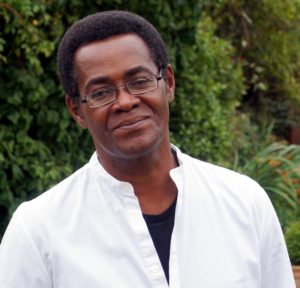
Jacob Ross is a writer, editor, anthologist, journalist and a tutor of narrative craft. His short story collections include Song for Simone, A Way to Catch The Dust, and his collected stories, Tell No one About This. His novels are Pynter Bender, The Bone Readers and Black Rain Falling, published in spring 2020. Ross is a Fellow of The Royal Society of Literature, and is currently Associate Fiction Editor at Peepal Tree Press.
